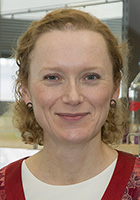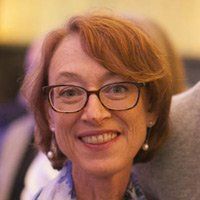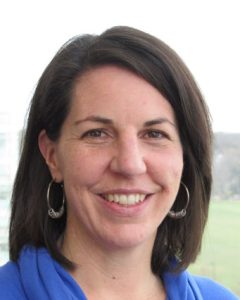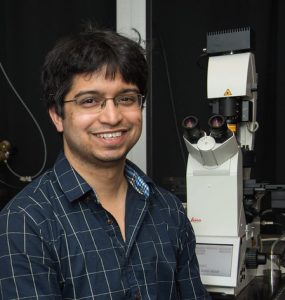Our Goal
To grow the involvement of trainees across the UW cancer research fields and foster a community of service.
Our Purpose
To serve and provide value to ALL cancer research trainees.
Started in 2019, CTN was created to provide a platform for ALL cancer related research from basic science to clinical fellows.
Registered Trainee Benefits:
• Interactions, support, and networking opportunities
• Funding and Awards – Research Retreat, Travel/Enrichment, Summer Research
• Cancer-related seminars
• Network communications
To be eligible for awards and travel opportunities, you must be a registered member.
Registration Link
Cancer Trainee Network Seminar Series
Provides trainees the opportunity to share their research with other trainees in a space for practice and collaboration.
12:00 pm – 1:00 pm, Pizza provided
Upcoming Seminar Dates
September 16, 2025 (HSC 1248)
October 21, 2025 (HSLC 1188)
November 18, 2025 (HSLC 1229)
February 17, 2026 (HSLC 1248)
March 17, 2026 (HSLC 1248)
April 21, 2026 (HSLC 1248)
Interested in presenting or nominating someone?
Heidi Dvinge & Patti Keely Travel/Enrichment Awards
for graduate and medical students, residents, clinical and research fellows and postdocs
Application for the 2025 Annual Awards will open in late Spring 2025
Congratulations to the recipients of the 2024 Annual Heidi Dvinge and Patti Keely Cancer Trainee Network Travel/Enrichment Awards!
This award was made possible by generous donors and is to provide support for full-time trainees to travel to events that will enhance their cancer research training.
This Cancer Trainee Network is named in honor and memory of two amazing scientists
 Heidi Dvinge, PhD, Assistant Professor of Biomolecular Chemistry and member of the Carbone Cancer Center, passed away unexpectedly in September 2019. With great sorrow over the loss of a brilliant young scientist, colleague, mentor and friend, we honor her memory and her scholarly work. Dvinge had been a member of the School of Medicine and Public Health faculty. Her research program was dedicated to understanding how misregulation of RNA processing contributes to disease, and how changes that occur in RNA splicing processes in cancer cells might be exploited to allow new therapeutic approaches. Her research interwove the disciplines of molecular biology, biochemistry, bioinformatics and oncology with a combination of precision and creativity. “She had the knowledge and ability to conduct science involving big data, but at the same time, she had finesse for experimental science in the lab — a very rare combination.” Says Emery Bresnick, PhD, leader of the UW Carbone Cancer Center’s Genetics and Epigenetics Program. The scientific world took note of Dvinge’s brilliance: Over the past five years alone, her publications have been cited more than 4,600 times.
Heidi Dvinge, PhD, Assistant Professor of Biomolecular Chemistry and member of the Carbone Cancer Center, passed away unexpectedly in September 2019. With great sorrow over the loss of a brilliant young scientist, colleague, mentor and friend, we honor her memory and her scholarly work. Dvinge had been a member of the School of Medicine and Public Health faculty. Her research program was dedicated to understanding how misregulation of RNA processing contributes to disease, and how changes that occur in RNA splicing processes in cancer cells might be exploited to allow new therapeutic approaches. Her research interwove the disciplines of molecular biology, biochemistry, bioinformatics and oncology with a combination of precision and creativity. “She had the knowledge and ability to conduct science involving big data, but at the same time, she had finesse for experimental science in the lab — a very rare combination.” Says Emery Bresnick, PhD, leader of the UW Carbone Cancer Center’s Genetics and Epigenetics Program. The scientific world took note of Dvinge’s brilliance: Over the past five years alone, her publications have been cited more than 4,600 times.
She was a skilled mentor to undergraduates and graduate students, serving as a faculty mentor in the Integrated Program in Biochemistry, the Graduate Program in Cellular and Molecular Biology, and the Genetics PhD program.
Patricia Keely, PhD, was Professor of Cell and Regenerative Biology and co-leader of the Tumor Micro-environment Group at Carbone Cancer Center. It would be easy to simply say Dr. Patti Keely was a world-class, nationally recognized breast cancer researcher at the University of Wisconsin School of Medicine and Public Health. And, that would be correct – but only part of the picture. Patti transformed her personal cancer diagnosis into experiential learning opportunities that inspired her to dive deeper in search of a cure for the disease. Keely died in 2017 of advanced pancreatic cancer. Her prolific research career, which includes countless publications, was most recently focused on cell signaling related to cellular differentiation and transformation and included her sentinel research on the role of the cellular micro-environment in the behavior of breast cancer cells.
co-leader of the Tumor Micro-environment Group at Carbone Cancer Center. It would be easy to simply say Dr. Patti Keely was a world-class, nationally recognized breast cancer researcher at the University of Wisconsin School of Medicine and Public Health. And, that would be correct – but only part of the picture. Patti transformed her personal cancer diagnosis into experiential learning opportunities that inspired her to dive deeper in search of a cure for the disease. Keely died in 2017 of advanced pancreatic cancer. Her prolific research career, which includes countless publications, was most recently focused on cell signaling related to cellular differentiation and transformation and included her sentinel research on the role of the cellular micro-environment in the behavior of breast cancer cells.
Her leadership, mentor ship and her collaborative nature allowed her to make a tremendous impact in this world, according to Dr. Howard Bailey, associate dean for oncology and past director of the Carbone Cancer Center. “She leaves behind a remarkable legacy as an outstanding scientist, dedicated mentor, strong academic leader, and caring and committed person,” said Dr. Robert Golden, dean of the School of Medicine and Public Health.


